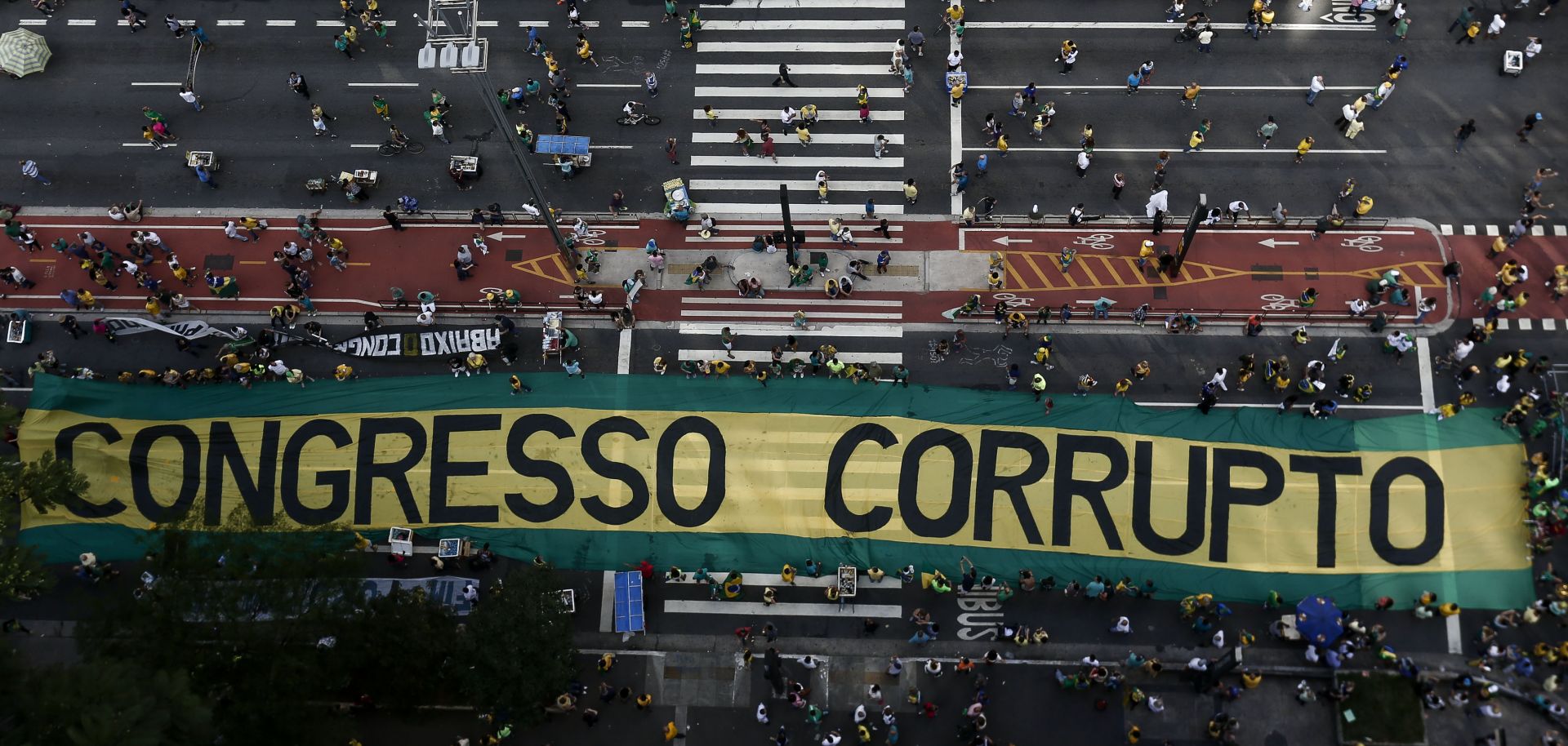COLUMNS
In a Time of Anti-Corruption Campaigns, Context Matters

Mar 8, 2018 | 22:20 GMT

A Brazilian anti-corruption protest in Sao Paulo on Dec. 4, 2016. Brazil's Lava Jato corruption investigation has implicated scores of politicians, including presidents and government ministers.
(MIGUEL SCHINCARIOL/AFP/Getty Images)
Highlights
- While global corruption rankings heavily influence credit and investment risk ratings, the geopolitical context around the motives of anti-graft efforts is critical to understand.
- Technological advancements in big data will enable interested parties to track down corruption allegations, sustaining anti-corruption momentum globally.
- Anti-corruption probes can take on many forms: Some are pure window-dressing or power plays, but there are strong examples of top-down and ground-up corruption probes that can either align neatly — or directly collide — with the imperatives of the state.
- Western powers will use anti-corruption campaigns as a foreign policy tool, but they run the risk of inflaming sensitivities over sovereignty in the process.
Subscribe Now
SubscribeAlready have an account?
